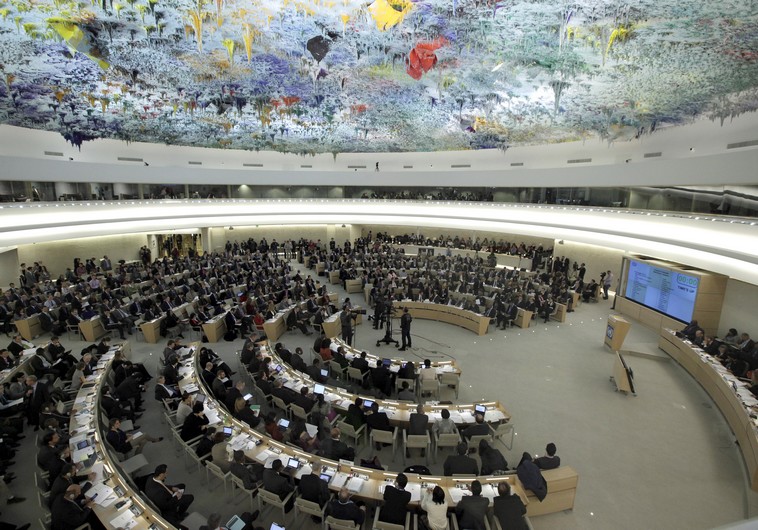Analysis: Foreign Ministry to UNHRC - Bring it on; but is Israel really ready?
Foreign Ministry’s robust report on the 2014 Gaza war was meant to strike hard and deep at the United Nations Human Rights Council report.
 Overview of the UN Human Rights Council during a debate at the United Nations in Geneva
Overview of the UN Human Rights Council during a debate at the United Nations in Geneva